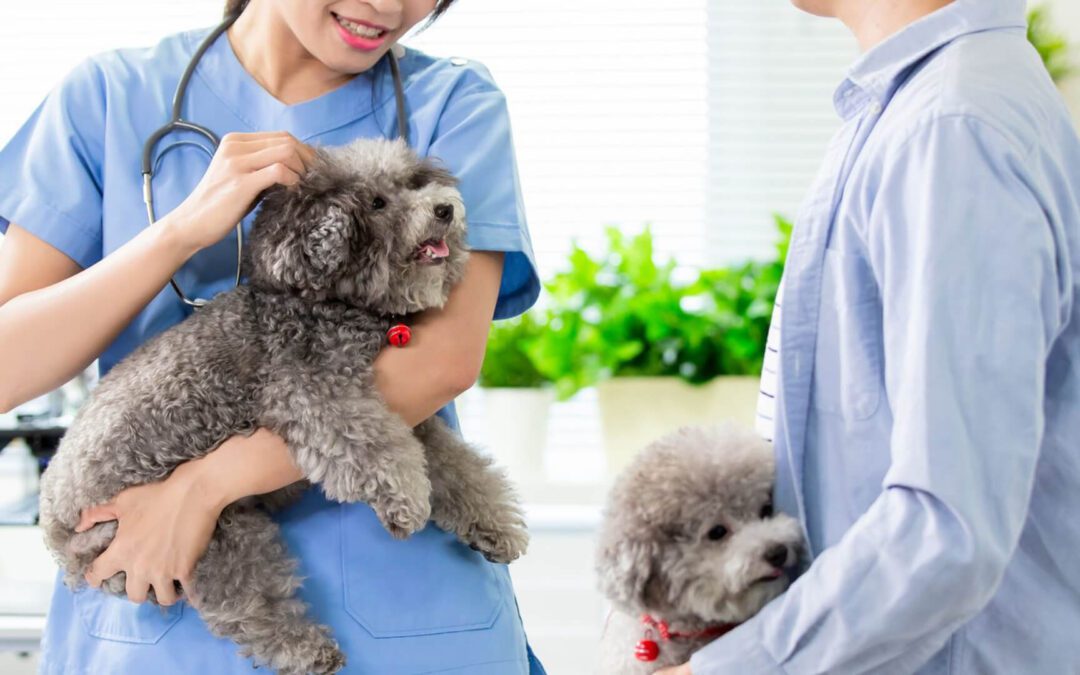What happens to dogs that aren’t socialized well?
Dogs that do not get early exposure to a variety of experiences with different people, places, and animals may struggle functioning in our busy and sometimes chaotic world. Inappropriate behaviors may range from being overexcited, an inability to focus, or being too intense, though some dogs may react in situations by being fearful, aggressive, or overwhelmed.
For example, if your puppy has a NEGATIVE experience with children in his or her socialization period, it is much more likely that he or she will respond to children in future with fear or even aggression. Countering this interaction with several positive interactions with children will give your puppy better coping skills to deal with children appropriately in the future.
MOST UNDER-SOCIALIZED PUPPIES WILL HAVE BEHAVIORAL PROBLEMS LATER IN LIFE.
Socialization Options
Now that we’ve discussed when to socialize and why it is important, we will go over specific topics to consider when creating your puppy’s socialization plan.
ANIMALS: Other dogs are priority and not all interactions need to be up close. Puppies also need to understand that there are dogs they don’t get to meet too. Variety is good! Introduce your puppy to dogs with different ages, play styles, sizes, breeds, and coat colors. We also recommend introducing them to any other animals they will be interacting with as an adult, such as cats, horses, birds, etc.
HANDLING: Normal handling and health care maintenance will be a part of your dog’s life and teaching them early will make these procedures MUCH easier. It also helps to ensure the safety of the pets and humans who are handling them. Brushing, ear touching (for flushing and possible future treatments), toenail and feet touching (for nail trims), and baths are all routines to establish. You should be able to touch your puppy all over their body without any fear or aggression.
NOISES: Dogs have far more sensitive hearing than people and noises are a common source of fear and anxiety. Some noises you can introduce them to include storms, hammers, vacuums, and fireworks either from recordings or naturally. Make positive associations with fun things like food or play when exposed.
LOCATIONS AND EXPERIENCES: Take your dog on frequent car rides and on adventures such as hiking, the beach, sitting at restaurants, etc. Make sure to familiarize them with any activities you plan on including them with as an adult dog.
PEOPLE: Having a positive experience with a variety of people is important. Things such as facial hair, hats, sunglasses, bulky clothes, unusual heights, and deep voices are common characteristics that can inherently scare dogs. Controlled and positive experiences with children are vital as well. Even having your puppy meet your postal carrier can be helpful.
SURFACES: Puppies need to gain confidence walking on a variety of surfaces. Options to have them walk on include wet grass, smooth floors, sand, rocks, water, and metal.
In summary, addressing socialization with any new puppy is a fundamental part of development and will help to build a confident, and well-balanced adult dog. If your puppy is already showing signs of anxiety, fear, or aggression, please discuss these behaviors with your veterinarian. Early intervention is always best and there are times when referral to a veterinary behaviorist should be considered.
-Dr. Rianne Decker

